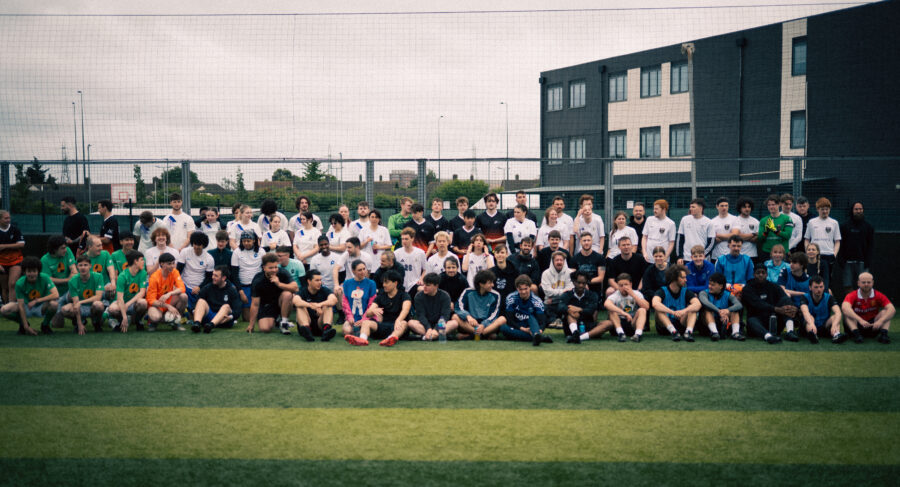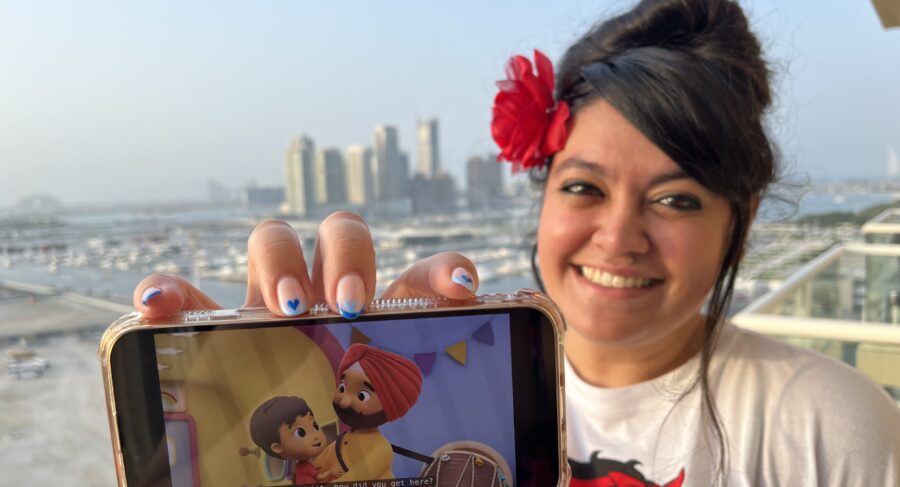The Positive Power of Play: How Video Games Enhance Mental Health
By MetStudios
24 September 2024
As gamers, we know that video games have a largely positive impact on our mental health. Not everybody recognises this, especially parents and carers who can become frustrated with the amount of time we spend in our beloved virtual worlds. That said, the benefits of gaming do outweigh the downsides.
The term ‘game’ is a little reductive; there is a huge variety of genres and ways in which people can interact with the games they play. Gaming can positively impact our minds on a number of levels, including developing and maintaining sharp cognition and reflexes for healthy brain activity, facilitating social interaction and forming connections with others, and helping us to relax and unwind. What’s more, the therapeutic effects of gaming and games technologies are now revolutionising treatment for both mental and physical health conditions.
Let’s take a dive into the ways that gaming can help our mental and physical health, how the technology is being used in medical contexts, and what types of games to play to improve our mental well-being.
The therapeutic benefits of gaming
Many people play games to unwind, which reduces stress and increases emotional well-being. Immersing ourselves in another world, a story, can act as a short mental holiday – a reprieve from the pressures of our day-to-day lives. Just as reading or watching TV or films offer escapism and relaxation, so too does gaming.
Studies have shown that video games can be effective in treating a range of disorders, such as PTSD, anxiety and depression. Virtual Reality Exposure Therapy (VRET), for example, uses VR to help patients confront and manage their fears in a controlled environment. This method is shown to be particularly effective for veterans suffering from PTSD. Mild, regular re-experiencing of traumatic events in a safe context can gradually reduce symptoms and go some way to re-establishing good mental health in patients.
Games have also been used in professional therapeutic settings to help those with ADHD and autism to develop communication and concentration skills; the sense of control over one’s actions, combined with specific boundaries and rules, can help people to feel safe and focused – both things that those of us with these conditions often struggle with.
Games like Minecraft Creative Mode, Animal Crossing: New Horizons, and Flower are great picks for a relaxing, therapeutic gaming session.
It’s not just mental health that gaming can help with. ‘Exergames’ (exercise games) like Wii Fit and Just Dance are great for getting us moving, increasing energy expenditure and improving cardiovascular health. These sorts of games are also proving extremely valuable in rehabilitation settings to help patients recover motor functions and improve physical fitness. These games provide a fun and engaging way to perform physical therapy exercises, making the recovery process more enjoyable and, ultimately, more effective as a result.
‘Enter-stressment’ and ‘Catharti-tainment’
Some games are far from what most would consider to be relaxing or therapeutic. On the surface, action and horror games (for example) seem like quite stressful experiences. You might say that these sort of games aren’t so much ‘enjoyable’ as cathartic.
Games like Alien: Isolation, Outlast, or The Last of Us: Part II demand a high level of mental engagement – and quick reflexes! Players have to solve puzzles while making snap decisions, such as whether to engage or avoid enemies or hazards, which is the best weapon or tool to choose at any given moment, and managing resources like health and ammo efficiently. Many of these decisions have to be made in the space of a few seconds under duress, often while considering all of the factors above.
Playing high-pressure games like these can create intense emotional experiences. Players can experience fear, excitement and an adrenalin rush, all of which provide a great outlet for pent-up stress and anxiety, which can be incredibly satisfying and relieving. The sense of accomplishment in overcoming tough in-game challenges, such as defeating a powerful boss in Bloodborne can really boost a player’s confidence and self-esteem. This sense of achievement reinforces positive emotions and a can-do attitude that players can take into their everyday life.
Gaming experiences that provide catharsis for the player also act as valuable ‘brain training’. Gameplay elements can help develop and maintain sharp reflexes and cognition, and improve spatial awareness, decisiveness, and calmness under pressure.
The social benefits of gaming
Many people like to play games competitively or cooperatively, either with ‘IRL’ friends or other players. Multiplayer games are great for helping develop social connections with others, and build friendly communities. Social gaming can be a real lifeline for those who may find it difficult to connect with others in real-life settings, or struggle to meet like-minded people where they live and work.
During the COVID-19 pandemic, gaming played an instrumental role in helping people cope with the challenges of lockdowns and social isolation. About 30% of UK players surveyed for study by Ipsos Mori reported that gaming helped to improve their mood and reduce feelings of isolation during lockdown. This percentage increased to nearly 50% for those playing multiplayer online games, highlighting the importance of social interaction through gaming.
Games like Fortnite and World of Warcraft create environments where players can work together to achieve common goals, fostering teamwork and communication skills. According to a US study by the Pew Research Center, 78% of teenagers say they feel more connected to friends through gaming.
Emotional resilience, empathy, and perseverance
Video games play a key role in helping young players, and neurodivergent individuals, to build emotional resilience. Engaging narratives and challenging gameplay provide experiences that mirror real-life struggles, encouraging players to persevere and adapt, enhancing their emotional and psychological development.
Games like Celeste and Gris, for example, provide engaging gameplay while delving into themes of mental health and emotional resilience. Players are encouraged to face their fears and persevere through challenges. According to a study published in the Journal of Computer-Mediated Communication, narrative-driven games like these can increase players’ empathy and understanding of mental health issues.
Conclusion
In summary, video games can play a complex role in mental health, offering both challenges and opportunities for designers, developers, and players alike. While excessive gaming can lead to negative outcomes, games also provide valuable benefits, such as stress relief, community building, and even therapeutic interventions. The key lies in striking a healthy balance and understanding how gaming can be harnessed as a positive tool for mental – and physical – wellbeing.












